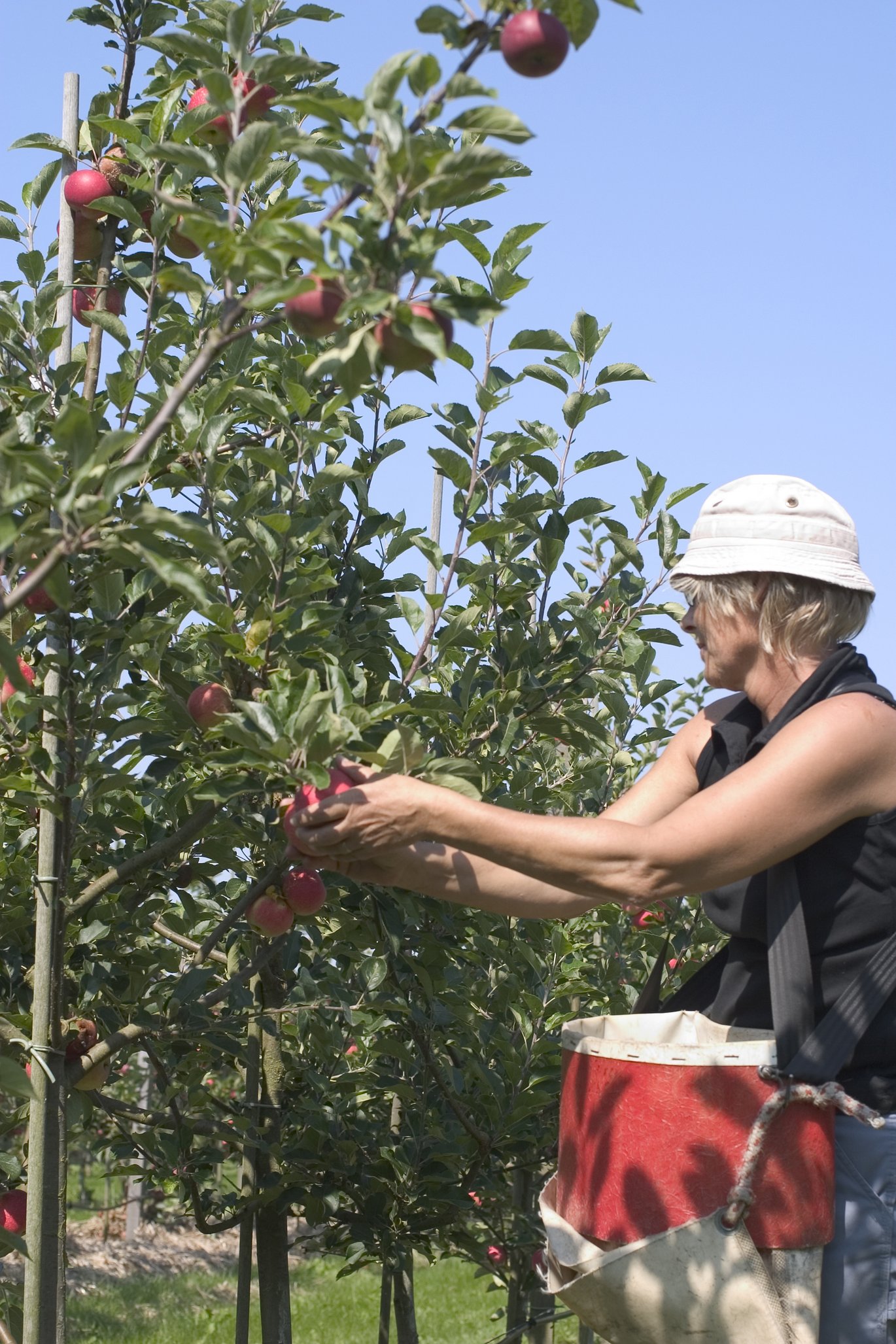New research to support the Danish organic apple production
Experiments with new organic apple varieties, flower patches in the orchard, development of a new gas burner and apple storage conditions are new research initiatives designed to strengthen the production of organic apples.

The Danish organic apple production is small and unstable and challenged by the import of organic apples. Scientists from Aarhus University, University of Copenhagen and University of Southern Denmark will attempt to change this in a research project that focuses on the entire value chain from orchard via storage to consumer.
- In the FruitGrowth project the objective is to increase the Danish production of high-quality organic apples. It is important to reduce the risks associated with varietal selection, pests, diseases, shelf life and a resource-intensive production, explains head of department Michelle Williams, who is the project leader.
To improve conditions for organic apples, a number of varieties suitable for non-chemical cultivation are being selected. An existing collection of 45 different varieties where trees have been left untreated for many years has been assessed. More than half of the varieties proved unsuitable as the trees had died because of canker. New project experiments will include varieties from all over Europe.
The initiatives to improve the Danish organic apples production also include development of a self-propelled gas burner to control weeds under the trees. The burner is based on new technology that can reduce energy consumption by up to 30 percent and is being developed in collaboration with the company Envo-Dan.
The FruitGrowth project also focuses on a new storage technique with dynamic climate control where the oxygen concentration is gradually reduced to reflect the drop in apple respiration rate at lower temperatures. This technique inhibits the development of fungal diseases during storage.
Flowers strips benefit apples
Scientists in the project are also in the process of evaluating the merit of growing patches of flowers that may attract the biological enemies of apple pests. Field trials have been conducted in 10 organic orchards (five with grass around fruit trees and five with flower strips) and the hope is that a good database can be established for assessing the effect of floral strips on the prevalence of pests.
The mass release of predators, the testing of organic remedies against the apple sawfly, and the mechanical control of apple scab by either covering the apple trees with a roof or wrapping up branches are other approaches tested in the FruitGrowth project, which runs until 2013.
Scientists hope that the project will result in positive outcomes - for the benefit of both apple producers and consumers:
- Results will be available to apple growers, but the processing industry will also benefit from the successes, since it will result in a larger supply of organic fruit for processing and for use in developing new products. Danish organic fresh fruit will provide healthy choices for consumers and a wider and more stable selection of organic products. This will increase awareness of organic apples and the likelihood of repeat purchases of organic products, reckons Michelle Williams.
FruitGrowth has a total budget of 7.5 million DKK and involves a number of partners. The project is funded by the Green Development and Demonstration Programme (GUDP), The Danish AgriFish Agency, and the Ministry of Food, Agriculture and Fisheries under the Organic RDD programme.
Read more about the FruitGrowth project here (only available in Danish)
Further information: Senior scientist Marianne Bertelsen, Department of Food Science, telephone: +45 8715 8328, e-mail: marianne.bertelsen@agrsci.dk
